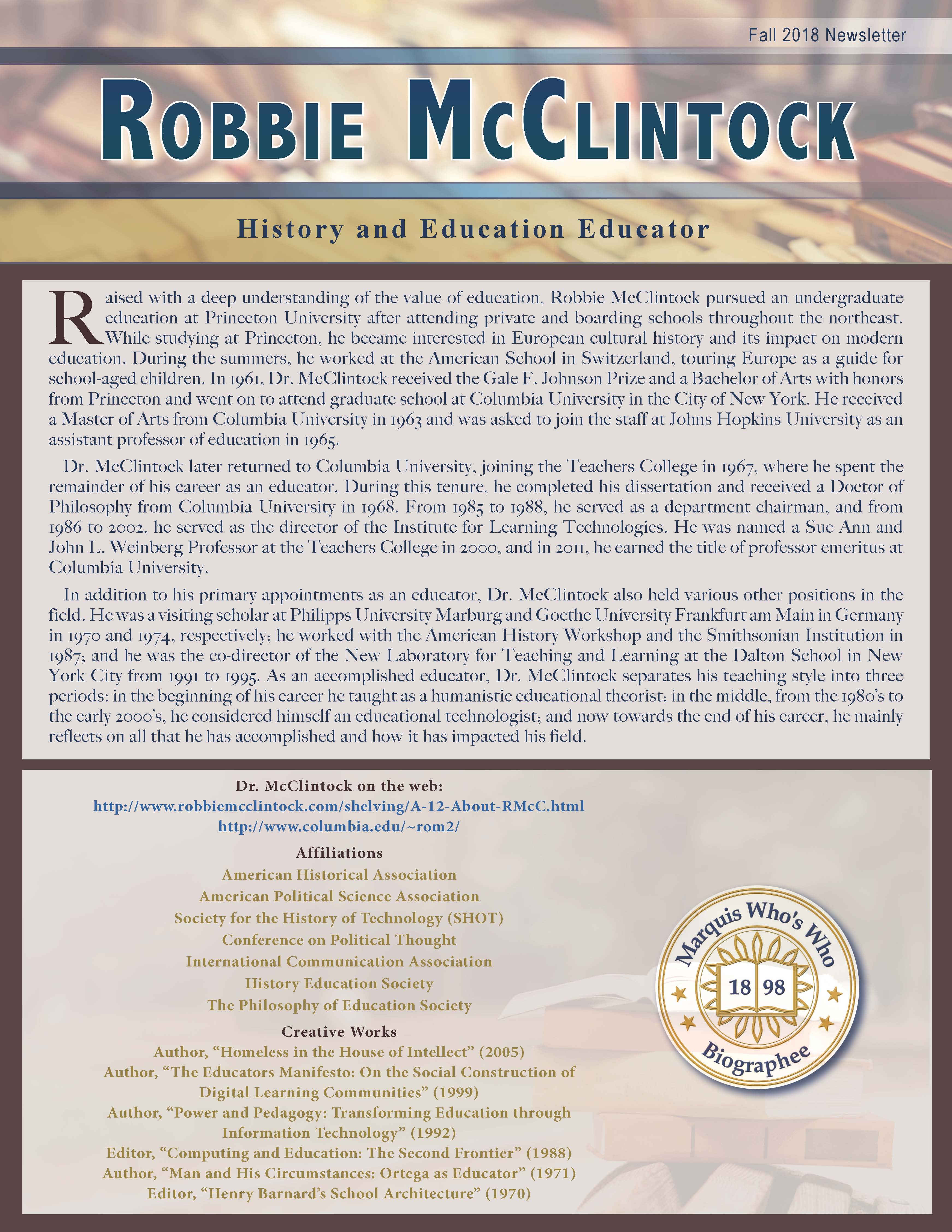
Raised with a deep understanding of the value of education, Robbie McClintock pursued an undergraduate education at Princeton University after attending private and boarding schools throughout the northeast. While studying at Princeton, he became interested in European cultural history and its impact on modern education. During the summers, he worked at the American School in Switzerland, touring Europe as a guide for school-aged children. In 1961, Dr. McClintock received the Gale F. Johnson Prize and a Bachelor of Arts with honors from Princeton and went on to attend graduate school at Columbia University in New York City. He received a Master of Arts from Columbia University in 1963 and was asked to join the staff at Johns Hopkins University as an assistant professor of education in 1965.
Dr. McClintock later returned to Columbia University, joining the Teachers College in 1967, where he spent the remainder of his career as an educator. During this tenure, he completed his dissertation and received a Doctor of Philosophy from Columbia University in 1968. From 1985 to 1988, he served as a department chairman, and from 1986 to 2002, he served as the director of the Institute for Learning Technologies. He was named a Sue Ann and John L. Weinberg Professor at the Teachers College in 2000, and in 2011, he earned the title of professor emeritus at Columbia University.
In addition to his primary appointments as an educator, Dr. McClintock also held various other positions in the field. He was a visiting scholar at Philipps University Marburg and Goethe University Frankfurt am Main in Germany in 1970 and 1974, respectively; he worked with the American History Workshop and the Smithsonian Institution in 1987; and he was the co-director of the New Laboratory for Teaching and Learning at the Dalton School in New York City from 1991 to 1995. As an accomplished educator, Dr. McClintock separates his teaching style into three periods: in the beginning of his career he taught as a humanistic educational theorist; in the middle, from the 1980’s to the early 2000’s, he considered himself an educational technologist; and now towards the end of his career, he mainly reflects on all that he has accomplished and how it has impacted his field.
Contact Dr. McClintock: